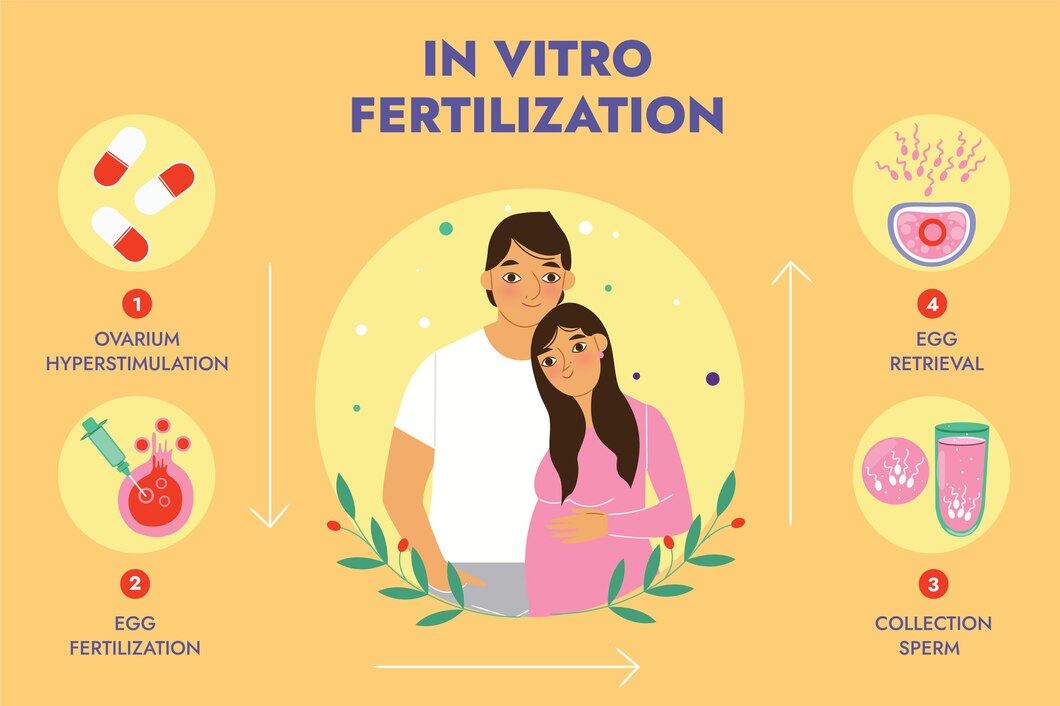In vitro fertilization, also called IVF, includes a series of procedures that help with fertilization, embryo development, and implantation. The process helps people who can’t get pregnant naturally or have abnormal sperm parameters. While the process works most of the time, IVF failure can occur due to the following causes:
1. Age-Related Problems
As a woman becomes older, they have fewer eggs remaining in their ovaries. The quality of the eggs also reduces and increases the risk of genetic disorders in the child. Older women are also more likely to have lower blood flow and insufficient hormonal signaling. These changes reduce the ability of the uterus to hold and support an embryo. Other conditions common among older people, like thyroid dysfunction, diabetes, and hypertension can cause IVF failure.
2. Poor Egg Quality
Successful IVF requires that the egg is at the metaphase 2 stage. If the egg is at the metaphase 1 stage, germinal vesicle breakdown stage, or germinal vesicle stage, the IVF process can fail. An egg can also fail if it has a reflective body, dark intrusions, vacuoles, granules, and an unstable shape. Another characteristic of poor egg quality is a polar body that shows signs of large size discrepancy, degeneration, irregular shape, and fragmentation. The mitochondria may also show low mitochondrial DNA copy number, reduced mitochondrial membrane potential, decreased ATP production, and abnormal mitochondrial morphology.
3. Sperm Quality
IVF may fail due to poor sperm count issues, such as low total sperm concentration. There can also be motility issues such as low progressive motility and decreased speed of motile sperm. If sperm have morphology issues, like abnormally shaped heads, coiled tails, or large or small heads, the IVF can fail. Another problem is compromised DNA integrity, which includes increased DNA fragmentation, oxidative DNA damage, and DNA strand breaks.
4. Embryo Quality
An embryo that has a low cell count and irregular cell shape or abnormal cell size affects the cell morphology and number. If excessive fragmentation happens, the viability of the embryo can also decrease. Another embryo quality issue is when the cells don’t have a symmetrical shape or size, pointing to potential developmental challenges. There may also be unexpected distribution of blastomere as well as a low rate of cell division during the development of the embryo.
5. Implantation Issues
For implantation to be successful, the endometrial lining must have sufficient thickness. If the lining is too thin, the implantation might fail. Even when the lining has enough thickness, it may not accept the embryo due to genetic problems, immune system issues, and inflammation. Another problem is where the implantation happens when the uterus is not receptive to an embryo. Problems with the uterus itself can also prevent safe implantation. Some of those problems are adhesions, polyps, and fibroids.
6. Lifestyle Factors
Any type of smoking reduces the quality of sperm and eggs, leading to a lower IVF rate. The same problem might happen if you consume large amounts of alcohol, as alcohol reduces the quality of sperm, changes hormone levels in the body, and shifts menstrual cycles. If you are overweight or underweight, you can be outside the necessary body mass index range that is ideal for IVF success. Another problem is nutrition and diet, with success rates being low for people who consume insufficient amounts of minerals, vitamins, and nutrients. Stress, lack of regular exercise, and sleep also contribute to IVF failure.
7. Medication-Related Causes
The ovaries can be overstimulated when you take the wrong dosage of medication. If you don’t take your medication on time or miss your doses, fertilization can also fail. The same problem can occur if you have an allergic reaction to specific fertility medication. An example is when you develop skin irritation and anaphylactic reactions that interfere with safe fertilization. Another cause of IVF failure is ovarian stimulation syndrome, which causes fluids to accumulate in the abdomen. This problem not only affects the development of the embryo but can be life-threatening.
Work With a Fertility Specialist to Reduce the Chances of IVF Failure
If you can’t have children, IVF can help you start the family you’ve always dreamed of. The unfortunate thing is that IVF failure might occur due to several factors. One possible solution is to undergo certain types of tests with the help of a fertility specialist. This can help you know the cause of infertility and increase your chances of giving birth. Reach out to a doctor who can help you know the cause of your failed IVF.





Be First to Comment